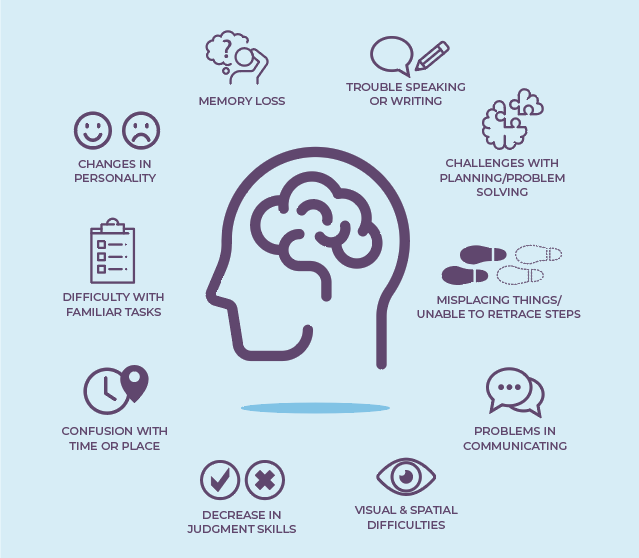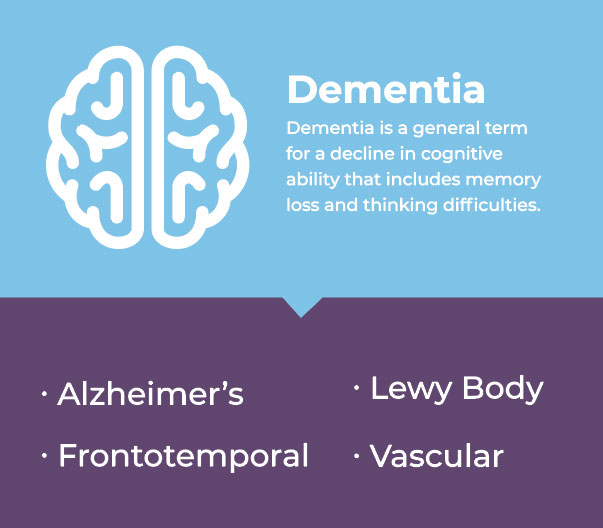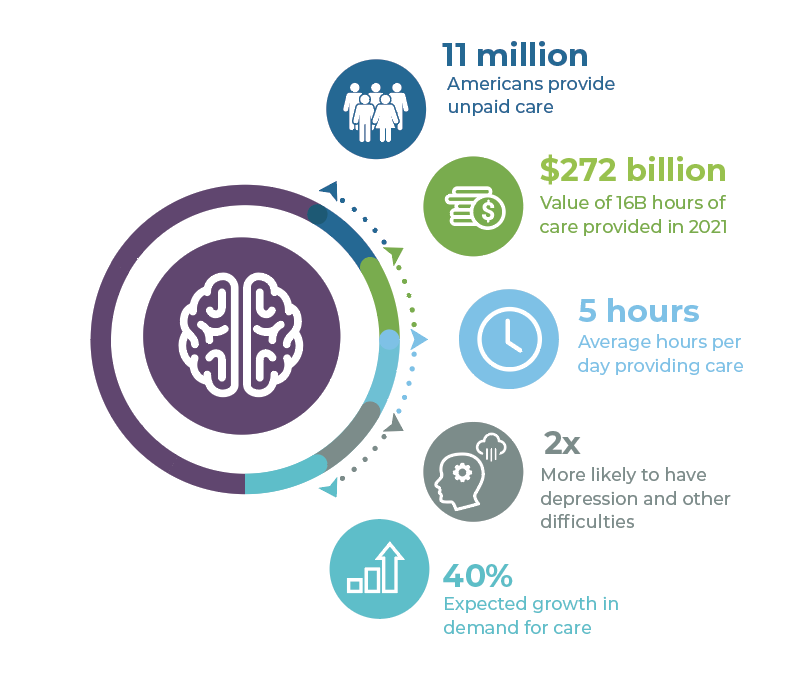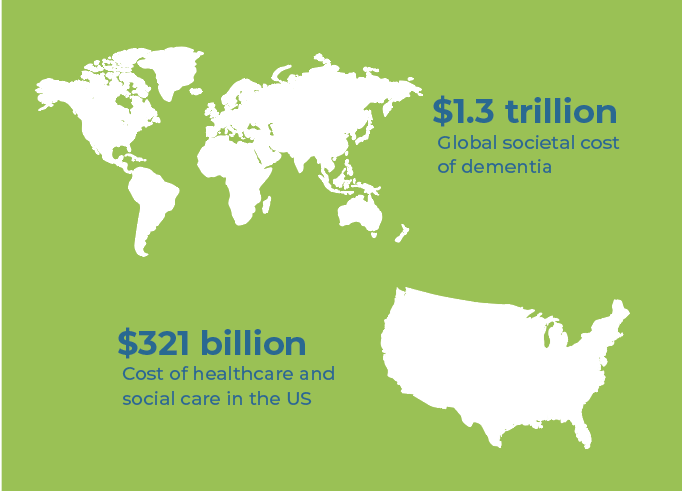
What is dementia?
Dementia is not a specific disease but is rather a general term for the persistent loss of brain function, including impairment of memory, abstract thinking, and decision-making that interferes with everyday life.
Symptoms Associated with Dementia
When living with dementia and brain change, symptoms can ebb and flow depending on the type of dementia, the person’s living situation, and the type of care that they receive. While there is no cure, there are many ways to manage the different symptoms and improve the well-being and quality of life of those it affects.
- Memory loss
- Challenges in planning or solving problems
- Difficulty completing familiar tasks
- Confusion with time or place
- Visual and spatial difficulties
- Understanding language and comprehending speech
- Misplacing things or unable to retrace steps
- Decrease in judgment skills
- Withdrawal from social activities
- Changes in mood and personality
- Balance and mobility issues

Common Types of Dementia
While Alzheimer’s is the most commonly known type of dementia, there are over 120 different forms of the disease. Some of the most common are:
- Alzheimer’s
- Frontotemporal
- Lewy Body
- Vascular
There is currently no cure for any of these types of dementia. For now, proper care focused on understanding, empathy, and compassion is the most impactful way to treat dementia. If you or your loved one is diagnosed with dementia, it is not the end of the road—it’s the start of a new journey toward understanding the disease, managing symptoms, and engaging different resources for a higher quality of life.

Dementia Stats
- An estimated 6.5 million Americans aged 65 and older are living with dementia. By 2050, that number is expected to rise to 13 million.
- While dementia usually affects those 40+, cases have been reported in people as young as 25.
- 70% of all nursing home residents have dementia. The number of people out in the community (aging in place) living with dementia is estimated to be 4x higher.
- The journey of dementia can last 8-20 years.
- Those with dementia have 3x as many emergency room visits as their non-dementia peers.


Dementia in Michigan
- Dementia is the 6th leading terminal illness in our state.
- 190,000 people 65+ are living with dementia in Michigan, which is expected to increase to 220,000 by 2025.
- An estimated 517,000 family caregivers are also affected by dementia.

Caregiving Stats
- More than 11 million Americans provide unpaid care for people with Alzheimer’s and other dementias.
- In 2021, these caregivers provided more than 16 billion hours of care valued at nearly $272B. In Michigan, their work is valued at nearly $8 billion.
- Informal caregivers (spouses, family members, friends) spend an average of 5 hours per day providing care for people living with dementia.
- Caregivers of those with dementia are 2x as likely to have depression and other mental difficulties.
- Demand for care is expected to grow 40%.
- 15% – caregivers who report having to quit their jobs to provide care.
Economic Impact
- In 2020, the estimated global societal cost of dementia was $1.3 trillion.
- The US spends $321 billion annually to provide dementia healthcare services. By 2050, these costs are expected to reach nearly $1 trillion.
- The total lifetime cost of care for a patient with dementia is $412,936.

Demographics
- 73% of those with dementia are age 75 or older.
- Almost 2/3 of Americans with dementia are women.
- Data indicates 19% of black, 14% of Hispanic, and 10% of white adults aged 65+ have Alzheimer’s/dementia.

What does this all mean?
Experts around the world agree that we are in the midst of a dementia healthcare crisis that will only be made more difficult to combat by the aging population and lack of professional caregivers. The good news is that we are here to help. At Dementia Institute, we’re dedicated to creating a dementia-capable community that understands the difficulties dementia brings, empowers those living with it, and enables their loved ones to find or provide the highest quality of care.